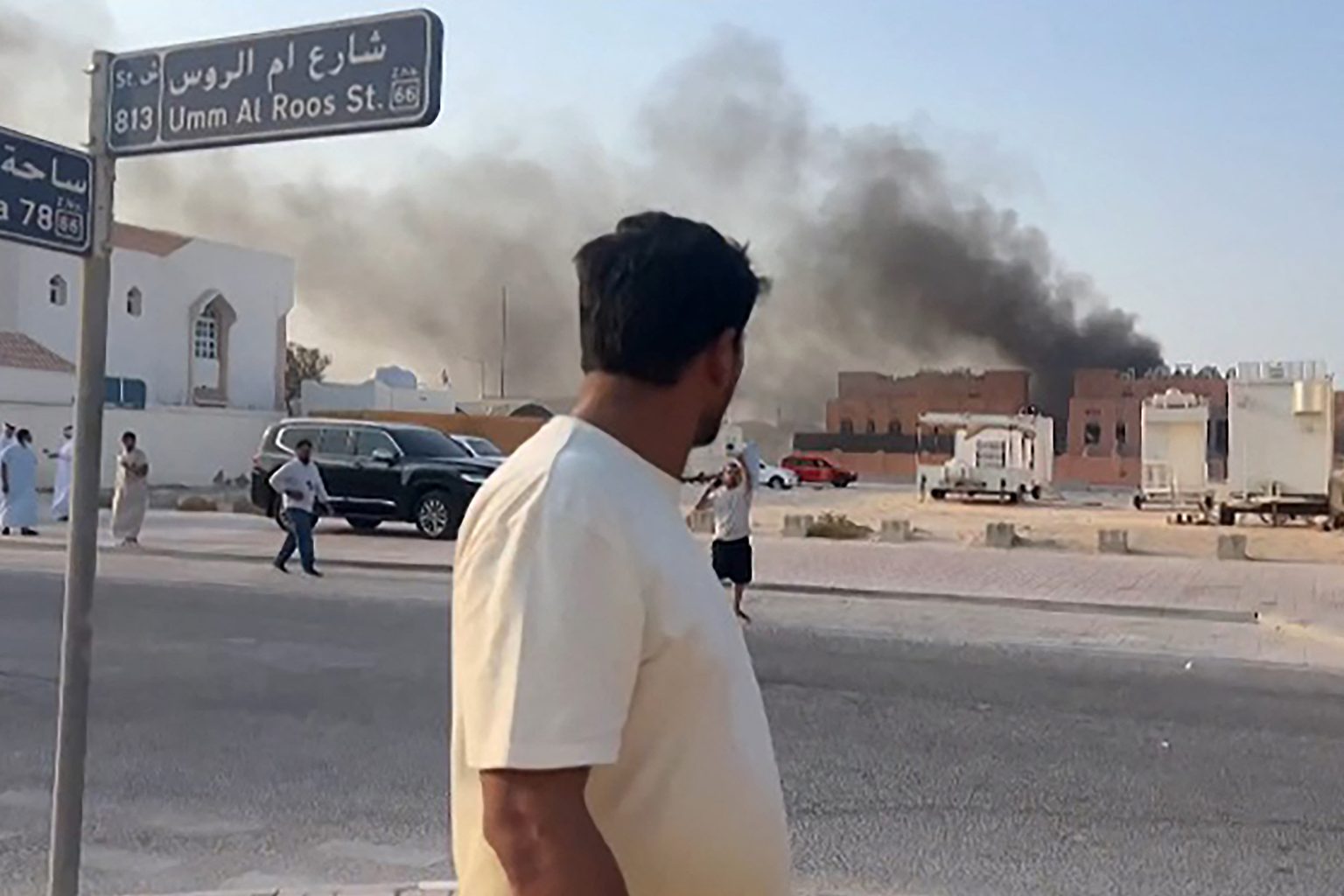Israel’s Strike in Qatar: Diplomatic Tensions Rise Amid Peace Efforts
In a significant escalation of regional tensions, new satellite imagery released by Planet Labs on Wednesday revealed damage to a residential complex in Doha that housed Hamas leaders targeted by an Israeli strike on Tuesday. The attack, which occurred on Qatari soil, has created a diplomatic crisis that threatens to undermine recent peace initiatives in the Middle East. Qatari authorities are currently working to identify body parts recovered from the scene, though there is no official confirmation yet regarding whether senior Hamas leaders were killed in the bombing. This strike represents a bold expansion of Israel’s military campaign against Hamas beyond Gaza’s borders, raising concerns about sovereignty and the future of peace negotiations.
President Donald Trump has found himself in a delicate diplomatic position, attempting to balance support for Israel’s security operations while preserving crucial relationships with Arab partners like Qatar. In the aftermath of the strike, Trump assured Qatar that such actions would not be repeated, even as he continues to back Israel’s broader mission to dismantle Hamas. This incident threatens to strain one of Trump’s most significant diplomatic achievements in the region, as Qatar serves as a key mediator in peace negotiations and broader Middle Eastern diplomacy that directly serves American interests. The tension comes at a particularly sensitive time, potentially undercutting Trump’s push for a Gaza ceasefire and risking retaliatory violence in a region where he has promised to establish lasting peace.
Qatar, which hosts the largest U.S. military base in the Middle East, has responded forcefully to the attack, calling on Trump to take action against Israel for what it describes as a clear breach of Qatari sovereignty. Qatari Prime Minister Sheikh Mohammed bin Abdulrahman Al Thani expressed his country’s outrage in a CNN interview, stating, “What we heard from the president was a very strong message reiterating his commitment to the partnership of Qatar, expressing that this is unacceptable to be attacked, and we highly appreciate that. And I think the actions should follow.” The Prime Minister further characterized the attack as “state terror,” saying, “We are betrayed.” Meanwhile, Israeli leadership has defended the strike, with Prime Minister Benjamin Netanyahu asserting that Hamas’ leadership in Qatar was responsible for planning and directing the October 7, 2023, attack that killed approximately 1,200 people in southern Israel and led to the capture of 251 hostages.
The timing of the strike is particularly significant as it occurred while Hamas delegates were meeting in Doha to discuss the latest U.S. proposal for a Gaza ceasefire. Trump had recently issued an ultimatum to Hamas, demanding the release of all remaining hostages or facing consequences. According to Hamas, six of its members were killed in the strikes, including the son of leader Khalil al-Hayya, though the group claimed other senior members had survived. Prime Minister Al Thani told CNN that the Israeli strikes had effectively killed hopes for the release of the remaining hostages and undermined chances for peace and stability. In a striking revelation, he added that he had met with a family of an Israeli hostage the very same day Israel conducted its attack in Doha, highlighting the complex and delicate nature of Qatar’s role as an intermediary.
The diplomatic fallout has created a war of words between Israeli and Qatari leadership. Netanyahu issued a stark warning: “I say to Qatar and all nations who harbor terrorists, you either expel them, or you bring them to justice because if you don’t, we will.” In response, Al Thani countered that Netanyahu was the one who “needs to be brought to justice,” noting that the Israeli leader is wanted by the International Criminal Court. The exchange represents the deteriorating relationship between two nations that, despite never having formal diplomatic ties, had maintained a functional working relationship through back channels in the interest of regional stability. Israel justifies its actions by pointing to Hamas’ deadly October 7 attack, which ignited the ongoing Gaza war, while Qatar emphasizes its role in humanitarian mediation and views the strike as a violation of its sovereignty and international law.
Looking ahead, the international community watches closely as this incident may reshape Middle Eastern diplomacy. President Trump has attempted to frame the crisis as a potential opportunity, writing on Truth Social: “I view Qatar as a strong Ally and friend of the U.S., and feel very badly about the location of the attack. I want ALL of the Hostages, and bodies of the dead, released, and this War to END, NOW! I also spoke to Prime Minister Netanyahu after the attack. The Prime Minister told me that he wants to make Peace. I believe this unfortunate incident could serve as an opportunity for PEACE.” Despite this optimistic framing, concrete next steps remain unclear. Secretary of State Marco Rubio has been directed to finalize a Defense Cooperation Agreement with Qatar, though details have yet to be disclosed. Meanwhile, Qatar is seeking an emergency U.N. Security Council session to address what it considers a severe breach of its sovereignty. How these diplomatic maneuvers unfold in the coming days will likely have significant implications for the prospects of peace in Gaza and the broader stability of the Middle East.


